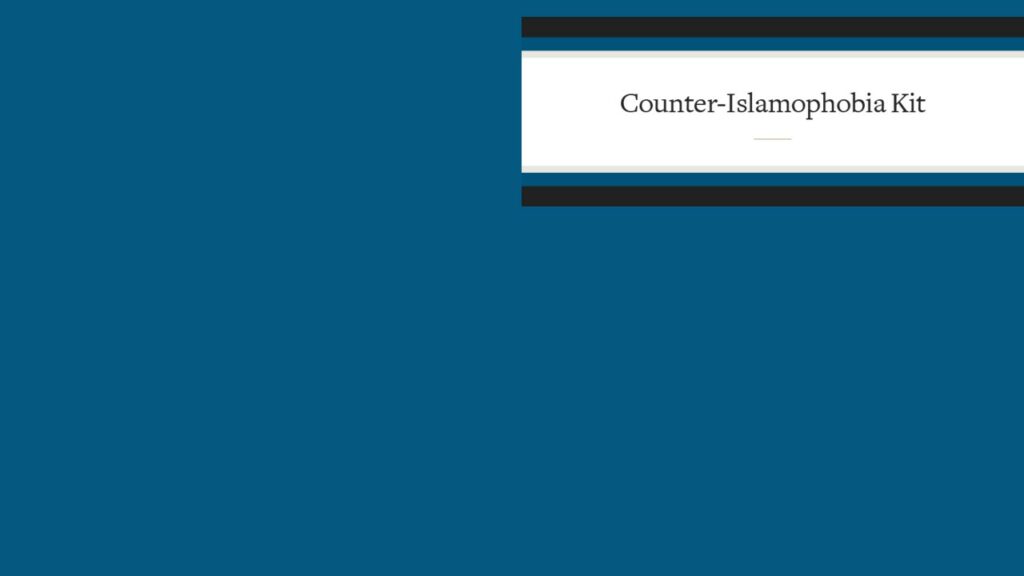This page provides the key documents, video and links in the Countering Islamophobic Narratives project (CIK) that was undertaken in 2017 – 2018.
The authors of the research on Belgium were Dr Hassan Bousetta and Dr Elsa Mescoli*. Watch the research author Dr Elsa Mescoli present their findings at the European Parliament in September 2018.
Workstream 1 looked at the Ten Dominant Narratives of Islamophobia in Belgium, looking at the historical and contemporary roots of anti-Muslim thinking, policy and practice in the national context.
“The aim of this working paper is to describe and explain the discursive content and forms that Muslim hatred takes in Belgium. We will first situate this research within the body of literature spread locally about Islamophobia, by taking into account institutions, scholars and associations. We will then give some overall information about Muslims in Belgium at the socio-demographic level, also pointing out the main forms of participation. Starting from the assumption that Islamophobia develops and performs in environments which are not neutral and which may impact the ways in which antiMuslim attacks deploy, we will then try to describe the formation of anti-Muslim hatred in Belgium through a diachronic perspective, taking into account recently past and contemporary times. The description of the most dominant narratives of Muslim hatred in Belgium will follow, and it will be summed up through the categorical listing of the ten most relevant discourses within the concluding section of this working paper, also trying to ranking them in order of dominance, significance, impact and / or coverage. The main sources of data upon which this report is built include state agencies statistics, records and data bases (mainly from the Interfederal Centre for Equal Opportunity – UNIA), local associations and international NGOs reports (by Collective against Islamophobia in Belgium – CCIB, Muslim Rights Belgium – MRB, Amnesty International among others) and European bodies accounts (the European Commission against Racism and Intolerance – ECRI and the European Union Agency for Fundamental Rights – FRA). A previous recent research report by the author of this working paper also served to provide for some data which has been verified and updated before adoption here.”
Download it here [55 pages].
Workstream 2 looked at the Ten Dominant Counter-Narratives of Islamophobia in Belgium, based on interviews with practitioners, lawyers, academics, political actors, NGOs, journalists and others.
As for the locations covered throughout fieldwork, they include both some Walloon citiessuch as Liège and Verviers and some Flemish cities, such as Hasselt, Antwerp, and Ghent6 . Besides covering these two regions, most of the research activities in terms of interviews and participant observations have been conducted in Brussels, where it was interesting to observe different levels of intervention – at times overlapping or interlocking, at times proceeding in parallel but without specific inter-dialogue – of the actors involved with the issue of Islamophobia. In fact, the geographical territory of Brussels corresponds to the political location of the European institutions, of the Federal government and of the Regional (Brussels-Capital) administration.
Download it here [ 55 pages].
Read a short commentary and summary on those findings here [external link] – Dominant Counter-Narratives to Islamophobia – Case review: Belgium
Workstream 3 is a summary report aimed at policymakers overviewing the findings and the actions needed to tackle Islamophobia. Download it here in English / here in French / here in Flemish.
Return to IHRC index.
* These reports were produced by a partner organisation in the Counter Islamophobia Toolkit project, not IHRC. All views expressed are the authors’ own and cannot be attributed to IHRC or the European Commission.




